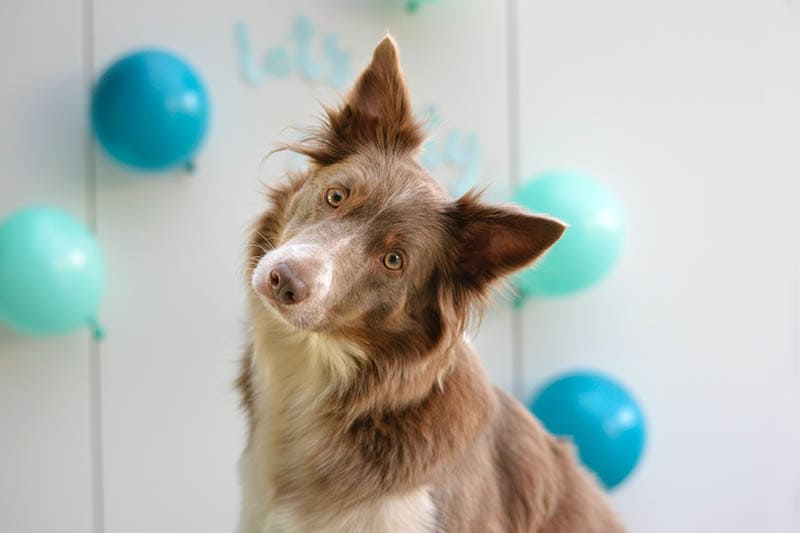How to Be a Good Dog Owner: 18 Vet-Approved Tips & Tricks
By Cheryl Regan
Updated on
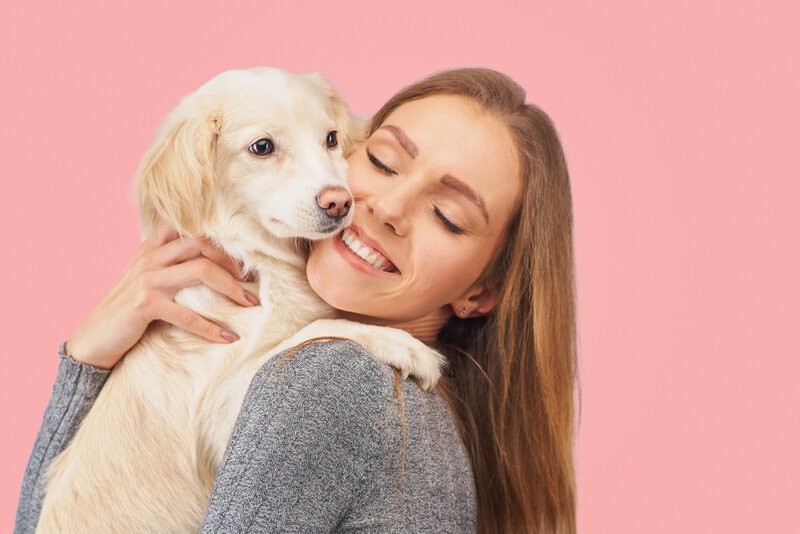
It’s natural for anyone who loves their dog to want to be the best pet parent they can be, and the fact that you’re reading this article shows that you’re already a caring dog owner! From learning to resist those gorgeous puppy dog eyes to preparing your home for a senior dog, we’ve compiled a list of 18 actionable tips and tricks to help you keep your pet healthy, happy, and safe.
The 18 Ways to Be a Good Dog Owner:
1. Make Time for Your Pet
Most people love the idea of owning a pet puppy. They’re fluffy and cute, and they can be a lot of fun to watch. But puppies—and dogs in general— require a large amount of time investment. Becoming a responsible pet owner means taking care of your dog’s physical health as well as their mental well-being, and that means spending plenty of time with them.
Taking your dog out for a walk, playing games with them, and training them are all great ways to bond with your pet and take care of their physical and mental health.
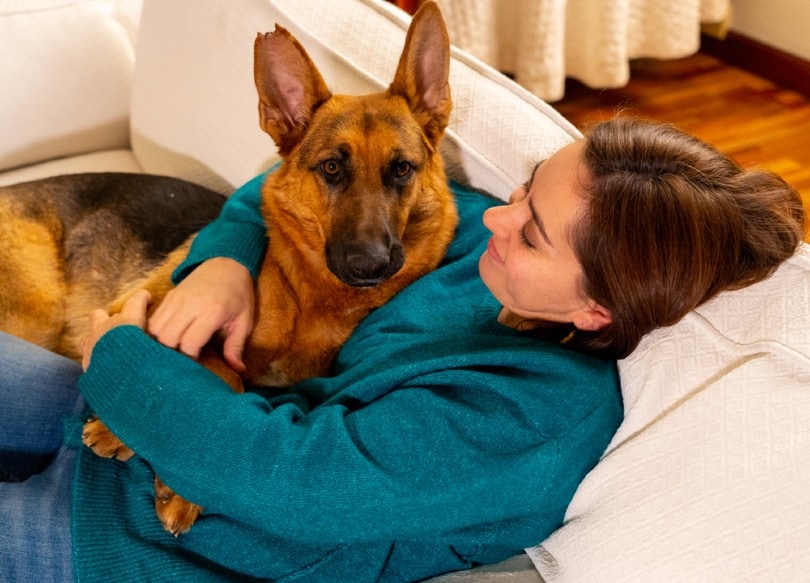
2. Research Your Dog’s Breed
Different dog breeds have varying needs, and learning about these needs will help you be a better pet parent. For example, brachycephalic dogs such as Pugs cannot handle heat very well, and they generally need less strenuous exercise. On the other hand, sporting and herding breeds such as Retrievers and Pointers need hours of exercise, or they can become destructive.
Another advantage of researching your dog’s breed is that it will alert you to diseases that can be common for them, helping you identify any signs if they ever occur.
3. Routine Health Checkups and Vaccinations
One of the most important advantages of routine checkups is the early detection of serious health issues such as cancer, as early detection increases the chances of successful cancer treatment.
Your vet should be able to give you advice on your dog’s overall health. For example, if your dog appears overweight or underweight, it may be that their diet needs altering.
Finally, your dog’s vaccinations and boosters will protect them from a host of nasty canine diseases.
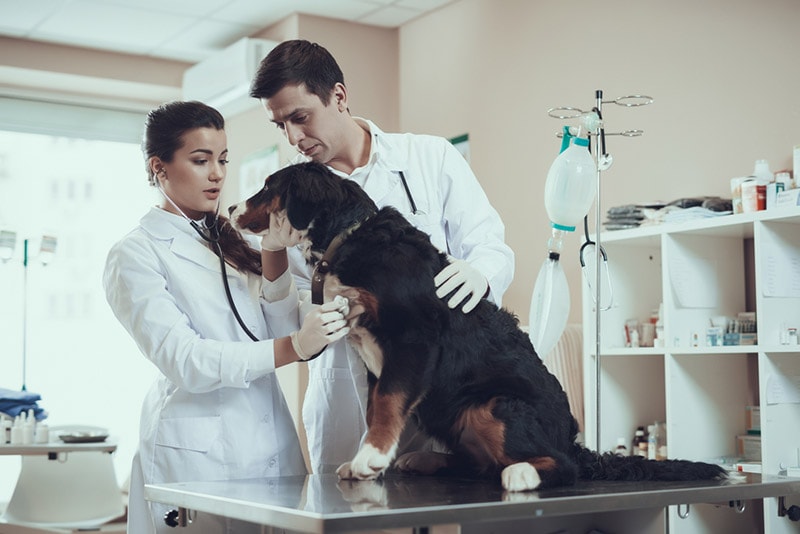
4. Cleaning Up After Your Dog
Cleaning up your dog’s mess makes you a responsible pet owner. Park visitors—especially those with young children—will appreciate you picking up your dog’s mess, as will the people in your neighborhood.
Cleaning up your dog’s poop probably doesn’t come to mind when you first stare adoringly at your brand-new puppy, but it’s a major part of pet parenthood. If it’s not something you enjoy doing, invest in a portable pooper scooper and make sure you take it with you when you take your pooch for a walk.
5. Provide a Healthy Diet
Your dog will have different diet requirements depending on factors like their breed, size, activity level, and life stage. Some dogs are more prone to allergies, while others may require a specific diet formulated for their breed needs. As your dog grows older, they may require fewer calories than when they were young and active, while puppies generally tend to have higher nutritional requirements.
Research your dog’s breed, and if you’re still unsure, speak to your vet about planning a nutritious and complete diet that is tailored to your dog’s needs.
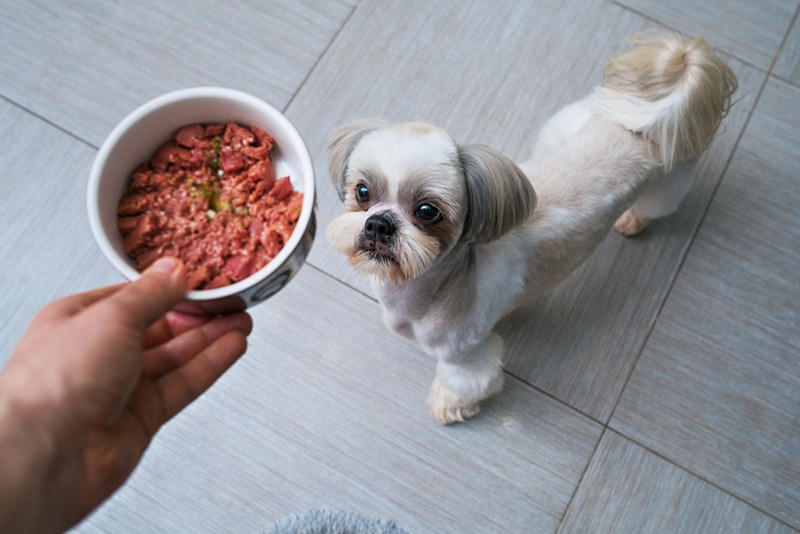
6. Avoid Overfeeding
It is so easy to give in to those adorable puppy-dog eyes, but you should not feed your dog more than 10% of their daily calorie requirements in treats. Try to avoid feeding them scraps from the table and opt for doggie treats that have nutritional value or other benefits. For example, dental chews can be a great way to treat your dog, and they’ll also help to keep your dog’s teeth clean.
7. Set Rules and Boundaries
Taking time to train your dog through small sessions every day makes you a more responsible dog owner. Not only will your dog love the attention and time you’re dedicating to them, but you can also help them learn how to be good-mannered dogs that obey your commands when you’re out in public.
It’s important to set house rules, boundaries, and a routine from the time you bring your puppy home. Consistency is key when it comes to training, so if you’re saying no to putting their nose on the table or jumping on people, you need to send the same message every time to avoid confusion.
Remember to use positive reinforcement by rewarding your dog with plenty of praise and affection when they behave how you want them to. If your dog isn’t quite there yet, stay calm, show patience, and avoid yelling. It is also recommended to hire a dog trainer if you feel that your dog isn’t very responsive to your training cues.
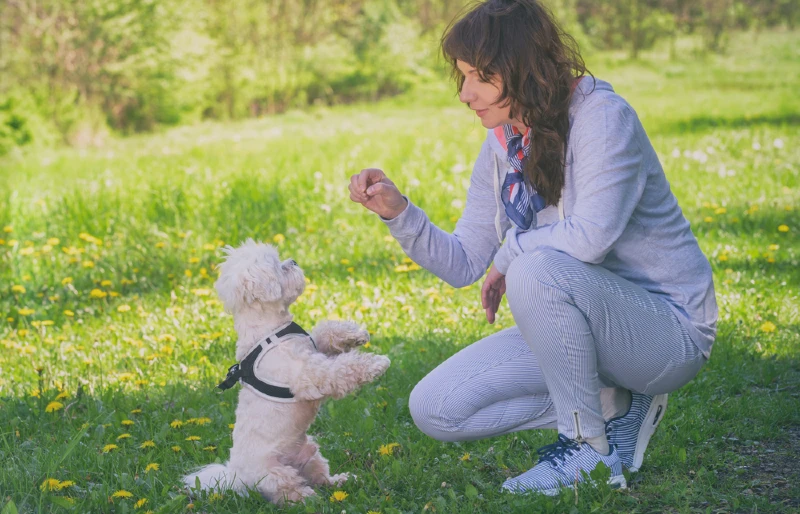
8. Routine Flea and Tick Checks
This is especially important for active outdoor dogs, but even dogs that mostly stay home can sometimes get nasty parasites like fleas and ticks. Regularly check your dog’s bedding as well as their coat—if they’re scratching a little more than usual, this could also be a sign of fleas. If your dogs enjoy walks in nature, pay close attention to and inspect their paw pads after a day out – this is usually a preferred place for ticks to latch on to.
If you find any parasites on your pet, you should have them examined by your veterinarian (as many of these parasites often carry other diseases as well). Your veterinarian can also set up a treatment and prevention protocol and explain the steps you need to follow to eradicate the infestation from your home or premises.
9. Grooming and Oral Hygiene
Dogs with thicker or longer coats will need more grooming and care than short-haired dogs, but even low-maintenance dogs will need bathing and grooming to keep them clean and healthy.
Some dogs will need to have their coat clipped, while others need regular brushing. But grooming isn’t just about your dog’s coat. Check your dog’s ears for debris and clean them as often as they need—dogs with droopy ears will need them to be cleaned more often.
Grooming will give you the chance to check for bumps and lumps on your pet as well as fleas and ticks.
Brushing your dog’s teeth daily is vital to preventing the build-up of bacteria and plaque in their mouth. Good oral hygiene will reduce the risk of periodontal disease—a condition that’s also been linked to heart disease.

10. Provide a Clean Environment
This responsibility can often be overlooked, but it should be easy to fix.
Wash your dog’s water and food bowls every day to remove slime and bacteria. Your dog should always have access to clean, fresh water. The area around their feeding station should also be cleaned regularly.
If you have two sets of bedding for your dog, you should be able to wash them regularly.
Use warm soapy water to wash your dog’s toys. Ensure they are thoroughly dried before you allow your dog to play with them again.
11. Microchip Your Dog
It’s scary to think about the possibility of your dog going missing, but unfortunately, it does happen sometimes. In the event that your dog runs away or gets lost, a microchip will increase the chances of your companion getting returned to you quickly. Speak to your vet about getting your dog microchipped.
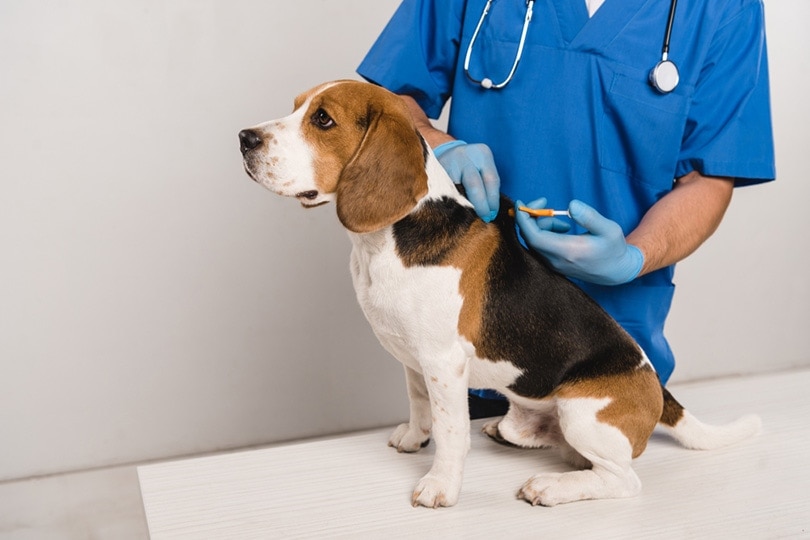
12. Make Emergency Plans
If you live alone with your dog, it’s vital to make plans for your dog’s care, so that if something happens to you, your dog can still be looked after.
Ask a friend, a member of your family, or a neighbor if they will agree to be an emergency contact. Leave instructions for your dog’s general care such as their diet, and your vet’s contact details in a safe place. In the event of hospitalization or another emergency, your step-in carer will be able to look after your loyal companion.
13. Praise and Affection
Cuddles, petting, and sitting in close proximity are all reassuring and loving acts. In fact, your dog will see these as signs of acceptance from their pack leader. Dogs are also incredibly good at picking up on their human’s tone of voice, which is why verbal praise is so important!
When your dog does something good—even if it isn’t their first time—reward them with a compliment.
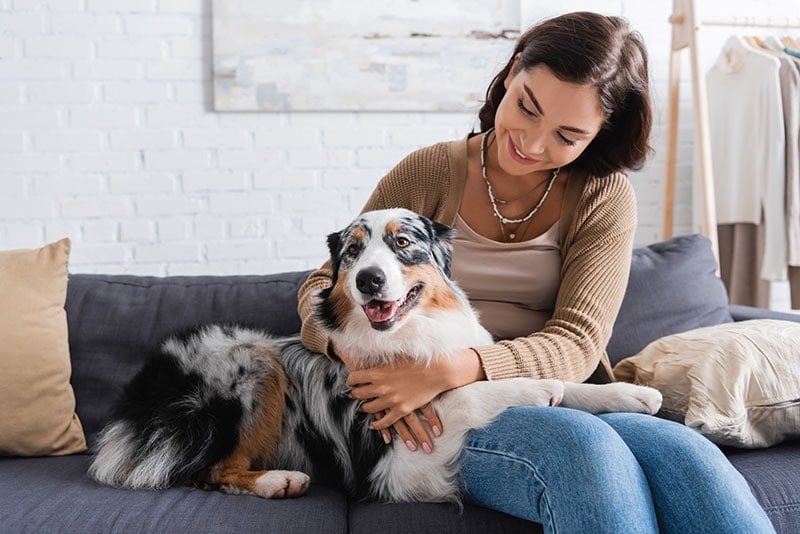
14. Not Everyone Is a Dog Person
Be it because of a phobia, an allergy, or a general dislike of pets, some people aren’t dog people. Instead of pushing for these people to change, it’s important to train your dog to respect boundaries and stay away from said people when you command them to.
If you are in a busy public space, keep your dog on a leash. Once you’re in a large, secure area—like a park—you can let them run around and play, provided it is legal to do so. Remember to check leash laws before allowing your dog to go off-leash.
15. Learn to Spot Signs of Stress
When you know your dog’s normal behavior, you should be able to spot signs of stress. Shaking or shivering, excessive shedding, increased bouts of sleepiness, panting without reason, excess barking or whining, and a tucked tail can all be signs that your dog is under stress.
If you feel that something isn’t quite right with your dog’s behavior, follow your instinct and call a vet for advice.
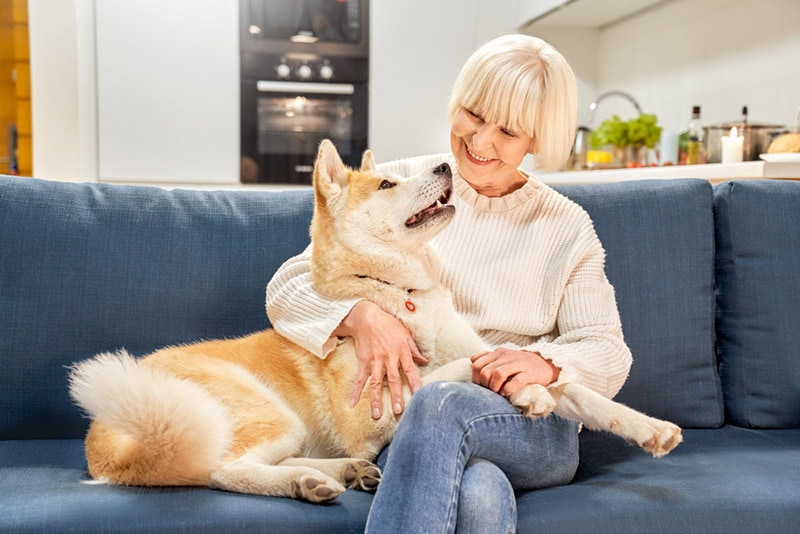
16. Provide Stress Busters When You’re Away
Some dogs are more prone to separation anxiety than others. High-maintenance dogs thrive on human interaction, and they cannot be left home alone for very long, if at all. Separation anxiety can result in destructive behavior as well as depression.
Other dogs are more independent. These dogs may be happy to entertain themselves at home for a few hours. If you are leaving your dog home alone, make sure they have access to clean fresh water. You may also want to invest in automatic dog food dispensers.
Leave puzzles and toys at home to keep your dog busy while you are away and give them plenty of affection when you get home.
17. Provide Breed-Appropriate Amounts of Exercise
Some dogs only need 20 minutes of exercise each day, while others need upwards of 2 hours! Check how much exercise your dog needs, and make sure they get the correct amount.
If you have an active breed that isn’t getting the exercise they need, it may lead to behavioral problems such as aggression and destructive behavior, as well as physical issues such as obesity.
Similarly, if your dog is not a breed that can handle strenuous exercise, then making them do too much can put excess stress on their bones, joints, heart, and respiratory systems.
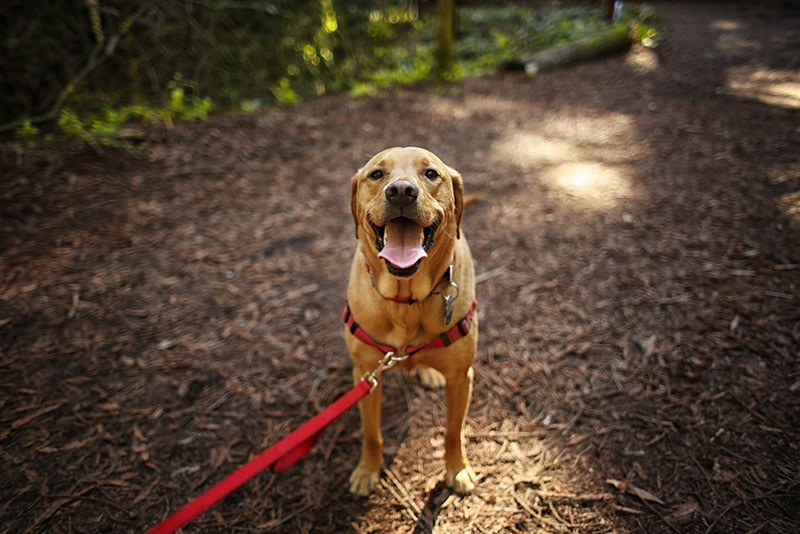
18. Adapting Your Home for Your Senior Dog
As your dog gets older, they may require different needs. Look at ways in which you can improve accessibility for your dog. For example, if they are suffering from joint problems, look into setting up dog ramps so they don’t have to tackle stairs.
Hardwood floors can be slippery and therefore tricky for senior dogs. Invest in rugs that have non-slip pads, or anti-slip dog boots.
If your dog can no longer handle long walks, but still looks out the window longingly, think about getting a dog stroller.
Dogs that suffer from arthritis may appreciate heating pads, while memory foam bedding may help your dog feel more comfortable when they sleep.
It is advised to have welfare checks for senior dogs at least twice a year with your vet. This improves the odds of finding potential ailments sooner rather than later. Early detection often improves the odds of treatment and recovery.
Conclusion
Learning about your dog’s specific needs will help you become a fantastic dog owner. Find out about your breed’s diet, exercise, and grooming requirements, and don’t forget to take them for routine checkups with your vet.
Finally, try to enjoy every moment with your dog. Spending quality time with your loyal companion will boost your mood as well as theirs!
Featured Image Credit: EverGrump, Shutterstock





